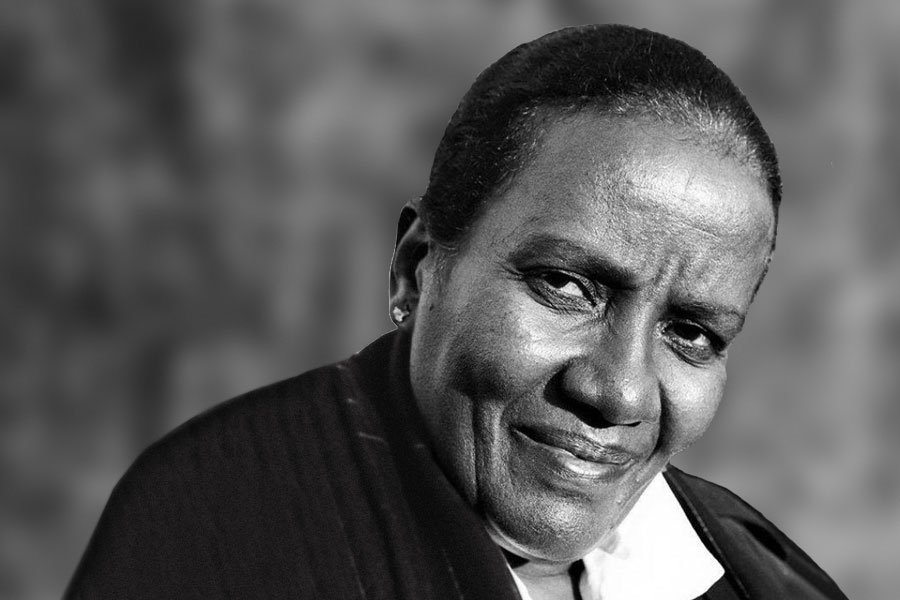
Nov 2 , 2019
By Tsion Fisseha
It was early in the morning, and I was barely awake. My dad, the surprisingly loud and chirpy morning person, comes and sits beside the bed and says, “Good morning.” I, still trying to figure out what time it is, respond drowsily and pretend to go back to sleep in order to cut the conversation short.
My father, uninterrupted by my lack of interest in the interaction, points toward his phone and asks me a question about a social media feature he was unable to understand. I took the phone, and within seconds, my dad snatches it away and says, “You know what, I will figure it out myself.”
At this point, I have started to get agitated for more reasons than one. More importantly, I was boiling over with rage, because of the fact that I was woken up to provide my service and immediately got shut down.
Regardless of how benign the altercation was, it made me think about all the times situations like this happen in the real world and how they lead to a point of no return. Most people are scared of asking for help. They are scared that the perception of people toward them might change, because they asked for a hand or a brain.
And we are also convinced that success and prestige come to those who thrive and work by themselves. And still, others say, “If I receive support, then I have to reciprocate. What if I can't return the favour? What if I don't want to return the favour?”
This is erroneous rhetoric. In fact, many leaders have proved the importance of asking for help when and as needed. An article written about this particular topic says the key is knowing when and how to ask for help and what to do with what’s provided.
Former United States President Barack Obama puts the ideology in perspective with the following quote: “Don't be afraid to ask questions. Don't be afraid to ask for help when you need it. I do that every day. Asking for help isn't a sign of weakness; it's a sign of strength. It shows you have the courage to admit when you don't know something, and to learn something new.”
Asking for help does not guarantee success, nor does it always get answers, but it at least eliminates the possibility of not knowing. It might not always be a push in the right direction; it does not even mean that one has to accept every form of help that has been given. But it should put one at ease by proving the point that one is not alone in this world and that two brains are better than one.
A good friend of mine once told me, "When you ask a question or when you ask for help, you might appear to be stupid or dumb for five minutes, but living your life not knowing what it is will guarantee you being stupid for the rest of your life". Asking for help keeps us away from making assumptions and keeps us from allowing our imaginations to run negatively wild. It lets us be a "we" as opposed to the "I" that has been consuming us for quite some time now.
No matter the situation one is put in, no matter how small the case might be or no matter how big of a problem one is facing, remembering that asking for help does not cripple or undermine the one who is asking is a lesson that should be kept near and dear to one’s heart.
PUBLISHED ON
Nov 02,2019 [ VOL
20 , NO
1018]


Editorial | Dec 25,2021

Radar | Jun 15,2025

Obituary | Mar 21,2020

Fortune News | May 08,2021

Sunday with Eden | Dec 24,2022

Viewpoints | Oct 09,2021

Verbatim | Dec 05,2018

Radar | Mar 27,2021

My Opinion | Sep 18,2021

Life Matters | Aug 03,2019

My Opinion | 131584 Views | Aug 14,2021

My Opinion | 127940 Views | Aug 21,2021

My Opinion | 125915 Views | Sep 10,2021

My Opinion | 123539 Views | Aug 07,2021

Dec 22 , 2024 . By TIZITA SHEWAFERAW
Charged with transforming colossal state-owned enterprises into modern and competitiv...

Aug 18 , 2024 . By AKSAH ITALO
Although predictable Yonas Zerihun's job in the ride-hailing service is not immune to...

Jul 28 , 2024 . By TIZITA SHEWAFERAW
Unhabitual, perhaps too many, Samuel Gebreyohannes, 38, used to occasionally enjoy a couple of beers at breakfast. However, he recently swit...

Jul 13 , 2024 . By AKSAH ITALO
Investors who rely on tractors, trucks, and field vehicles for commuting, transporting commodities, and f...

Jun 28 , 2025
Meseret Damtie, the assertive auditor general, has never been shy about naming names...

Jun 21 , 2025
A well-worn adage says, “Budget is not destiny, but it is direction.” Examining t...

Jun 14 , 2025
Yet again, the Horn of Africa is bracing for trouble. A region already frayed by wars...

Jun 7 , 2025
Few promises shine brighter in Addis Abeba than the pledge of a roof for every family...

Jun 29 , 2025
Addis Abeba's first rains have coincided with a sweeping rise in private school tuition, prompting the city's education...

Jun 29 , 2025 . By BEZAWIT HULUAGER
Central Bank Governor Mamo Mihretu claimed a bold reconfiguration of monetary policy...

Jun 29 , 2025 . By BEZAWIT HULUAGER
The federal government is betting on a sweeping overhaul of the driver licensing regi...

Jun 29 , 2025 . By NAHOM AYELE
Gadaa Bank has listed 1.2 million shares on the Ethiopian Securities Exchange (ESX),...